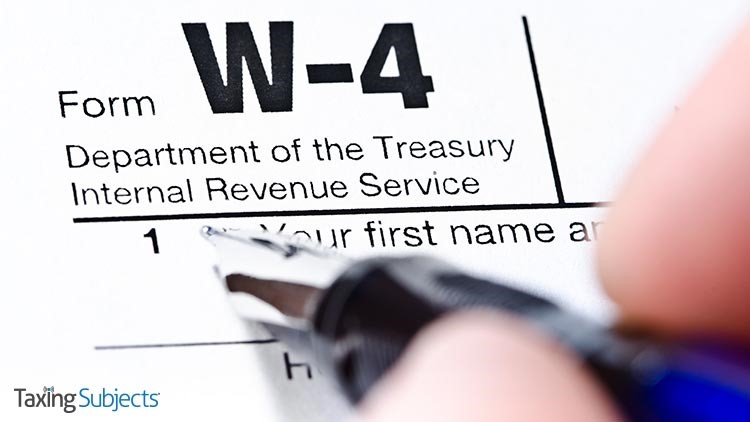by | May 13, 2022 | Tax Tips and News
As localized natural disasters continue to wreak havoc on a more global scale, it seems Mother Nature is finding new and frightening ways to disrupt our daily lives. From hurricanes and floods to droughts and forest fires, it’s no wonder we must think about how these “outdoor” occurrences might affect “indoor” living. May observes National Hurricane Preparedness Week in preparation for hurricane season, June 1 through November 30. Surviving these storms isn’t always about just physical survival, but one’s economic survival as well.
American taxpayers need to take steps to ensure they can weather a tropical storm or hurricane by making an emergency plan—or updating an existing one—and that’s where their trusted tax professional can help. Here are five tips from the IRS that you can pass along to clients ahead of hurricane season.
1. Secure Important Documents
Every taxpayer has documents that provide proof of identity and property ownership—from tax return records and birth certificates to property titles and deeds. Whenever possible, these records need to be kept in a waterproof container and stored in a secure space.
Copies of these documents should be kept off-site (such as a bank deposit box), so that the records survive even if the home is damaged or destroyed. Electronic copies can be treated the same way, with scanned documents loaded onto a flash drive or some other stable form of media and duplicates kept off-site just like paper documents.
2. Document What’s Valuable
In the case of hurricane damage to their home, taxpayers should take photos or videos of the contents beforehand; they can be valuable for supporting insurance claims or any post-disaster tax breaks.
Ideally, all property should be recorded, but at the very least, any high-cost items need to be documented such as art, furniture, jewelry and the like. The IRS has helpful disaster-loss workbooks in Publication 584 to help build a list of personal and business property.
3. Check for Fiduciary Bonds
If taxpayers are employers who use a payroll service provider, they should determine if the provider has a fiduciary bond in place. Such a bond can help protect them if the payroll service defaults.
The IRS urges all employers to choose their payroll service providers carefully.
4. Know How to Rebuild Lost Documents
Despite a taxpayer’s best efforts to protect documents from the elements, the loss of some documentation to in a natural disaster is always possible. Reconstructing records may be the only way forward after a hurricane, enabling the taxpayer to get federal assistance or an insurance reimbursement.
The first step in the reconstruction process is a visit to the IRS Reconstructing Records webpage. This page includes a helpful list of procedures with the links to necessary forms and more. Some of the topics covered include business and personal loss, vehicles, tax records and how to figure a loss.
5. The IRS Can Help
Once a disaster declaration is issued by FEMA (Federal Emergency Management Agency), the IRS can postpone some deadlines for filing and paying taxes. This typically occurs for taxpayers within an officially declared federal disaster area. In this case, there’s no need to call the IRS to request the relief. IRS systems will read the address of record for the taxpayer or business and adjust the measures accordingly.
Disaster-impacted taxpayers, businesses and others with disaster tax-related questions can call the IRS at 866.562.5227 to speak with a specialist who is trained to handle disaster-related issues. Those who live outside the disaster area, but also were impacted by the storm, can also call the number to determine if they qualify for disaster relief and to get available options.
The IRS Around the Nation webpage has disaster assistance and emergency relief details for individuals and businesses. And to Build a Kit of emergency supplies, check out FEMA’s Prepare for Disasters webpage.
Other helpful resources include:
- Publication 547, Casualties, Disasters, and Thefts
- Publication 583, Starting a Business and Keeping Records
- FS-2017-11, Reconstructing Records After a Natural Disaster or Casualty Loss
- Small Business Administration
- DisasterAssistance.gov
- Ready.gov
Sources: IR-2022-102; FS-2017-11; “Hurricanes,” Ready.gov
– Story provided by TaxingSubjects.com
by | May 10, 2022 | Tax Tips and News
A reworked version of Form W-4 has been released by the IRS and the Treasury Department for the 2020 tax year. A number of changes were made to earlier draft versions of the form in response to complaints from tax professionals.
Accounting Today reports Treasury doesn’t expect to make further changes beyond some small inflation-adjustment updates.
The redesigned Form W-4 uses a building-block approach, replacing complex worksheets with straightforward questions, making it simpler for employees to figure withholding accurately. The new form uses the same basic information as the old design, but employs a more personalized, step-by-step approach to better accommodate taxpayers.
Accounting Today reports the redesign will not force employees to resubmit a Form W-4 simply because of the update. Employers can continue to figure withholding based on information from the most recent W-4 submitted.
Complaints from Tax Pros
The complaints about the draft version of the form, Accounting Today reports, came from accountants and tax practitioners alike, who said the draft version required taxpayers to reveal too much information to their employers about outside sources of income for employees and their spouses.
The tax reform package passed in late 2017 eliminated traditional exemptions for taxpayers and dependents along with a long list of deductions, increasing the standard exemption amounts instead. The IRS urged taxpayers to do a “paycheck checkup” last year to make sure enough was being withheld from the taxpayers’ paychecks, but few taxpayers went through the complicated process. As a result, many taxpayers found themselves owing tax because of inadequate withholding.
The IRS is urging taxpayers to do another withholding checkup this year to make sure the correct amount is withheld from their paychecks. The agency has also come out with a new Tax Withholding Estimator online tool to help.
– Story provided by TaxingSubjects.com
by | May 8, 2022 | Tax Tips and News
It’s National Small Business Week, and this year’s theme is “Building a Better America Through Entrepreneurship.” Fittingly, the Internal Revenue Service is observing the occasion by providing free, tax-related resources to entrepreneurs entering the big world of small business.
Whether you currently serve business clients or want to start attracting entrepreneurs to your practice, this information can serve as a refresher before you have those conversations. Here are several highlights from the IRS top tips for new business owners.

Choosing a business structure
One of the first steps any new business owner must take is to choose the official reporting structure that best suits their company. This decision will determine which income tax return forms the new firm will have to file.
Here’s a quick overview of the most common business structures from the IRS:
- Sole proprietorship – When someone owns an unincorporated business by themselves.
- Partnerships – The relationship between two or more people to do trade or business.
- Corporations – In forming a corporation, prospective shareholders exchange money, property, or both, for the corporation’s capital stock.
- S Corporations – Are corporations that elect to pass corporate income, losses, deductions and credits through to their shareholders for federal tax purposes.
- Limited Liability Company (LLC) – Are allowed by state statute and may be subject to different regulations. The IRS will treat an LLC as either a corporation, partnership, or as part of the owner’s tax return (e.g., sole proprietorship) depending on elections made by the LLC and its number of members.
Business taxes decoded
Business structure also dictates which taxes are owed and how they should be paid. To help new entrepreneurs navigate their tax liability, the IRS lists four basic types of business tax and which entities need to pay them:
- Income tax – All businesses except partnerships must file an annual income tax return. Partnerships file an information return.
- Self-employment tax – Is a Social Security and Medicare tax primarily for individuals who work for themselves. Payments contribute to the individual’s coverage under the Social Security System.
- Employment tax – When small businesses have employees, the business has certain employment tax responsibilities that it must pay and forms it must file.
- Excise tax – Excise taxes are imposed on various goods, services and activities. Such taxes may be imposed on the manufacturer, retailer, or consumer, depending on the specific tax.
In most cases, business owners pay their income-based taxes—including self-employment tax—on a quarterly basis, using estimated taxes to avoid the shock of trying to pay an entire year’s worth of taxes (including possible penalties) at once.
What’s your business year?
New small businesses also choose a tax year: the accounting period they are expected to report income and expenses. While the calendar year—12 consecutive months starting January 1 and ending on December 31—may be the obvious choice, some will opt for a fiscal year—also 12 consecutive months, but ending on the last day of any month other than December.
As with all good rules of thumb, there is an exception: “A 52-53-week tax year is a fiscal tax year that varies from 52 to 53 weeks but does not have to end on the last day of a month.”
What’s an Employer Identification Number?
Most new businesses need an Employer Identification Number (EIN). “An Employer Identification Number (EIN) is also known as a Federal Tax Identification Number and is used to identify a business entity,” the IRS explains. “This is a free service offered by the Internal Revenue Service and business owners can get their EIN immediately.”
Taxpayers who want to get an EIN just need to visit “Apply for an Employer Identification Number (EIN) Online” on IRS.gov. The page explains the simple, three-step application process.
Good record keeping will save headaches
Keeping good records is critical to a business owner’s success. As the IRS notes, adequate recordkeeping is crucial for the following tasks and activities:
- Monitoring business progress
- Preparing financial statements
- Identifying sources of income
- Tracking deductible expenses
- Tracking basis in property
- Preparing tax returns
- Supporting items reported on tax returns with proper documentation
Business owners should also know that tax records need to be maintained for at least three years.
Additional resources
The IRS website has a number of tools and webpages devoted to helping small business owners make good decisions:
Interested in learning about business-tax topics and earning continuing professional education credits? DrakeCPE.com has courses ranging from Fundamentals of Preparing Form 1120 to Fringe Benefits: Tax Implications!
Source: IR-2022-98
– Story provided by TaxingSubjects.com
by | May 8, 2022 | Tax Tips and News
With the deadline for filing individual tax returns come and gone, tax professionals everywhere are enjoying well-earned downtime. However, taking a little time with business-return clients to get a jump on planning for next filing season could bring unexpected savings. Now is the perfect opportunity to help your business-return clients qualify for deductions—some common and some expiring.

What is the Enhanced Business Meal Deduction?
Historically, business owners had the ability to deduct half the cost of business-related food and beverages at a restaurant. But for tax years 2021 and 2022, that deduction applies to 100% of the cost of the meal.
There are a few qualifications, however, the filer has to meet:
- The business owner or an employee of the business has to be present when the food or beverages are provided.
- The expense can’t be lavish or extravagant.
- Qualifying restaurants include those who prepare and sell food or beverages to retail customers for immediate consumption, whether on- or off-premises.
- Other businesses, such as grocery stores and convenience stores, that primarily sell pre-packaged foods that aren’t intended for immediate consumption, don’t qualify for the 100% deduction.
- And certain employer-operated eating facilities can’t be considered restaurants under the deduction’s requirements—even if they’re operated by a third party under contract.
IRS Publication 463, Travel, Gift and Car Expenses, has more information about deducting business meals, as well as how to keep records for meals.
How do business owners deduct a home office?
There has been an explosion in the number of business owners who work from home, and a lot of them may qualify for the home office deduction. Business clients interested in claiming this deduction have to choose between the regular method and the simplified method.
The regular method starts with the 44-line Form 8829, Expenses for Business Use of Your Home, which separates applicable operating costs into two categories: “direct expenses” that are fully deductible and “indirect expenses” that are based on the percentage of the home used for business. Indirect expenses are usually items related to the home itself:
- Real estate taxes
- Mortgage interest
- Rent
- Casualty losses
- Utilities
- Insurance
- Depreciation
- Maintenance and repairs
The simplified method uses a 6-line worksheet in the Schedule C instructions to figure the deduction, using a fixed $5-per-square-foot rate for business use of the home. Using this method, the maximum deduction is capped at $1,500 (which assumes 300 square feet were used for business).
While being more general in scope, the simplified method does offer other benefits. Those using the simplified method to figure home office deductions aren’t allowed to depreciate the part of the home that’s used for business, but they can use Schedule A to claim home mortgage interest, real estate taxes, and casualty losses as itemized deductions—and they don’t have to be split between personal and business use.
No matter which method is chosen, business expenses beyond the gross income limitation aren’t deductible. Publication 587, Business Use of Your Home, has more information on the home office deduction and how to figure it.
Where can I find other deduction opportunities?
The IRS provides the following publications to guide small business owners and tax pros!
- Publication 535, Business Expenses – information on a wide range of business deductions
- Publication 946, How to Depreciate Property – information on major expenses, such as depreciating buildings, equipment, and other assets
- Publication 334, Tax Guide for Small Business -for individuals who use Schedule C, this has tax information tailored to the needs of small business
How do I learn more about small business tax issues?
Earn continuing professional education credits while learning more about business tax topics! The tax-education specialists at DrakeCPE.com have created in-depth courses that can help you better serve small-business clients:
Source: IR-2022-100
– Story provided by TaxingSubjects.com
by | May 1, 2022 | Tax Tips and News
Taxpayers may not be aware, but they have rights when it comes to working with the Internal Revenue Service. The Taxpayer Bill of Rights lists 10 fundamental tax-related rights, ranging from the right to be informed to the right to a fair and just tax system.
The IRS recently highlighted taxpayers’ right to challenge the IRS’s position and be heard as part of its Tax Tip series. This reminder comes roughly a week after the country survived another Tax Day.

What does the right to challenge the IRS’s position and be heard mean?
The right to challenge the IRS’s position and be heard means all taxpayers can:
- Raise objections.
- Provide additional documentation in response to formal or proposed IRS actions.
- Expect the IRS to consider their timely objections.
- Have the IRS consider any supporting documentation promptly and fairly.
- Receive a response if the IRS does not agree with their position.
But what does that actually mean in practice? For example, the IRS has to notify a taxpayer that their tax return has a math mistake or a clerical error. In this case, the taxpayer has 60 days to get back to the IRS and tell them they disagree.
In the meantime, the taxpayer should provide any records (or copies of records) that can help correct the error. Taxpayers can always call the telephone number included in the letter or notice for help from an IRS representative.
If the agency agrees with the taxpayer’s position, the IRS will make the necessary adjustments to the taxpayer’s accounts and send them a correction. However, a different set of expectations come into play if the IRS doesn’t agree with the taxpayer’s argument.
In that case, the IRS will send the taxpayer a notice by U.S. mail that proposes an adjustment to their return and notifies the taxpayer they have the right to challenge the proposed adjustment.
To challenge such an adjustment, the taxpayer has to file a petition in U.S. Tax Court. Usually, this petition has to be filed within 90 days of the date printed on the notice—or 150 days if the taxpayer lives outside the U.S.
Taxpayers undergoing an audit by the IRS have the right to submit documentation and raise objections during the audit. If the IRS disagrees, it issues a notice that outlines why it’s increasing the tax.
The taxpayer retains the right to petition the U.S. Tax Court before they pay the adjusted tax and to challenge the IRS’ decision. Sometimes, such as when enforcement actions are needed to collect a tax debt, the IRS has to provide a taxpayer an opportunity for a hearing before the Independent Office for Appeals. These actions can include placing a levy on the taxpayer’s bank account.
Here, too, the Taxpayer Bill of Rights guarantees options for the taxpayer. If the Appeals Office agrees with the IRS a levy is needed, and files a notice of federal tax lien with the appropriate state court, the taxpayer has the right to petition the U.S. Tax Court.
For more on taxpayer rights, appeals and other information, see Publication 556, Examination of Returns, Appeal Rights, and Claims for Refund.
Source: IRS Tax Tip 2022-65
– Story provided by TaxingSubjects.com
by | Apr 27, 2022 | Tax Tips and News
The Internal Revenue Service says the 2022 Nationwide Tax Forum will kick off July 19, with the classes and online festivities going for more than five weeks.
Live-streamed seminars will be offered every Tuesday, Wednesday and Thursday.

What’s the backstory for the Nationwide Tax Forums?
The Nationwide Tax Forum has been held for the past 30 years during the summer months, becoming the IRS’ top outreach event for tax professionals nationwide. This year’s event is once again being held as a virtual affair, providing an extra measure of security from COVID, while also allowing interaction between participants and experts.
Attending tax pros can have access to expert presentations on tax law, professional ethics, virtual currency, collection issues and other vital topics. A lot of tax professionals can fully satisfy their annual continuing education requirements by registering for the Tax Forum and attending the virtual presentations.
Tax practitioners are being urged by the IRS to register now to take advantage of the virtual program.
What’s on the agenda?
After starting on July 19, 2022’s IRS Nationwide Tax Forum will run through August 18. Registered attendees have the ability to take part in all of the lie webinars, earning up to 28 continuing education credits in the process.
As in years past, IRS Commissioner Charles Retting will kick off the Tax Forum with a keynote address. A plenary session will follow, with updates to tax law and publications.
Attendees then go into multiple sessions, focused on high-interest topics, with presentations made both by IRS experts and partner associations.
For the first time, four seminars—including the plenary session and an ethics webinar—will also be offered in Spanish as well as English. Those who register to attend the Virtual Expo will also have access to additional multilingual resources.
Timing is key if you want a good deal
Those tax pros who register by 5 p.m. on June 15 will qualify for an “Early Bird” rate of $240 per person. On June 16 the standard rate goes up to $289.
Tax pros who are members of one of the IRS national partner associations can save even more, getting a $10 discount off the Early Bird rate—if the register by June 15.
Members should contact their association directly for more information on the discount:
- American Bar Association (ABA) Section of Taxation
- American Institute of Certified Public Accountants (AICPA)
- National Association of Enrolled Agents (NAEA)
- National Association of Tax Professionals (NATP)
- National Society of Accountants (NSA)
- National Society of Tax Professionals (NSTP)
- Low Income Taxpayer Clinics (LITC)
- Volunteer Income Tax Assistance Program (VITA)
Access to the Virtual Expo is included with full registration for the IRS Nationwide Tax Forum. The Expo gives attendees the chance to visit with exhibitors representing dozens of leaders in the areas of tax software, financial services, leading national associations and a number of key IRS offices.
Other attractions within the Virtual Expo include:
- The latest tax products and software
- Representatives from IRS program offices in the IRS Zone, including expanded resources for multilingual engagement
- Bonus Q&A sessions in the Speaker’s Corner after each live session
- Live webinars from many of our sponsors
In addition, a number of small focus groups will be assembled, allowing attendees to directly share their experiences and discuss ideas with the IRS. The 2022 IRS Nationwide Tax Forum registration webpage has the list of topics and qualifications for focus group attendance.
Visit our virtual booth!
Be sure to visit the Drake Software virtual booth this year!
Source: IR-2022-90
– Story provided by TaxingSubjects.com










